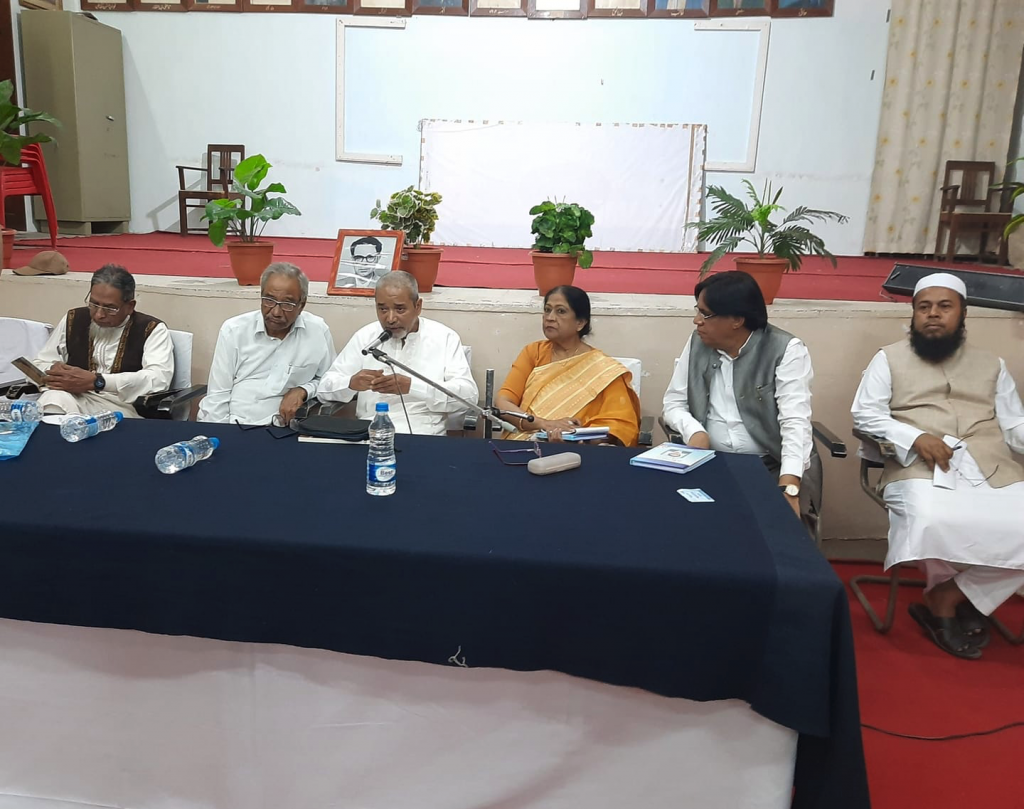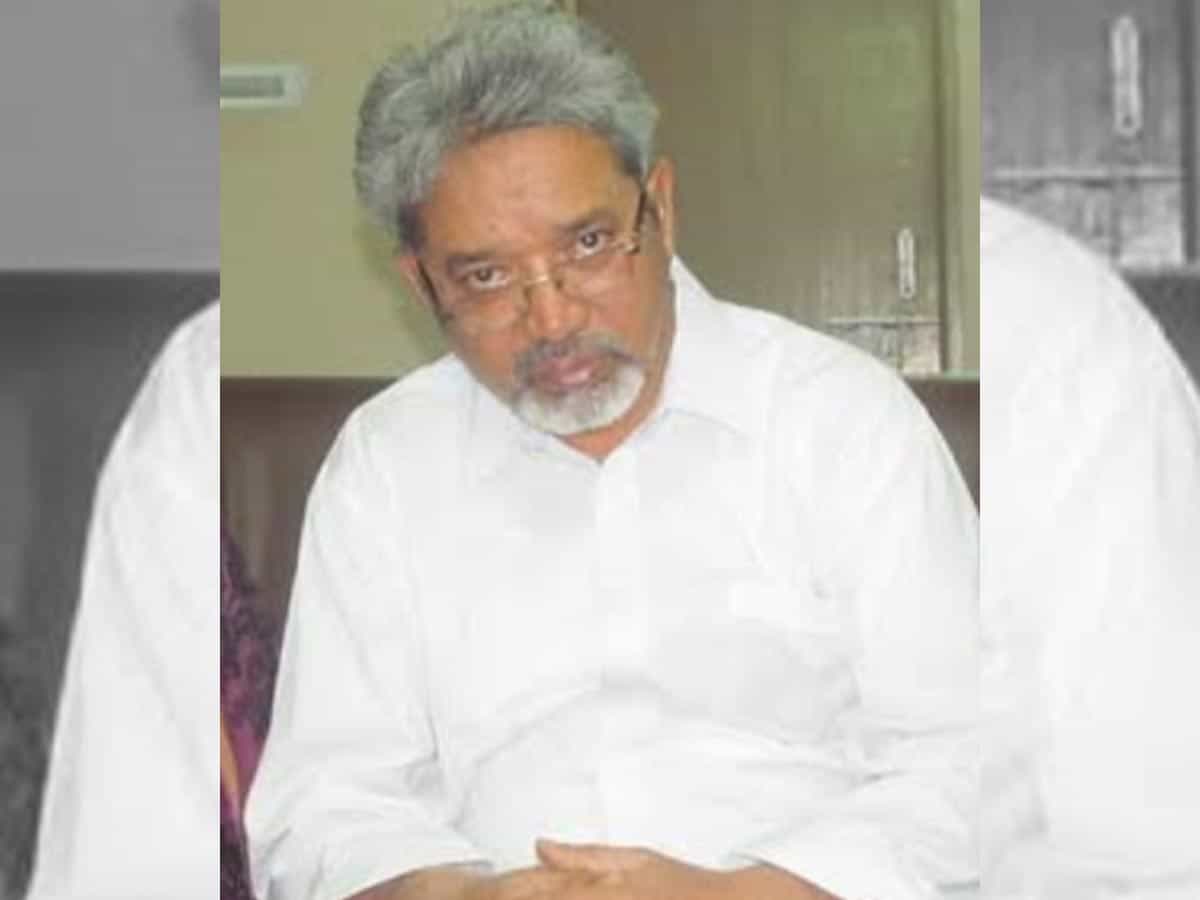Another Light is Gone
Professor Khalid Saeed’s life has been one of fluctuations. Yet after certain life-altering experiences he managed to further contribute to his craft as a poet, a scholar of substance, and duty towards his students whose minds he molded. On Monday, May 26, news of his death made its way through many Urdu circles nationwide.
A good friend of my father from his Engineering college days in Gulbarga, I was told that he always had a flair for poetry and literature. Everyone in this group of friends would ask him as to why he was pursuing a degree that didn’t do justice to his poetic, literary temperament.
Saeed followed his heart and in doing so he left behind quite a legacy.
He first began writing prose but when tragedy struck in the form of his sister’s death, he instead took to poetry for creative expression. After serving as an Urdu lecturer in Bidar for 24 years, he then transplanted himself to Hyderabad where he flourished as a Professor at MANUU.
The Urdu department there wouldn’t have been what it is today without him.
Tajamul Islam, a former PhD student at Maulana Azad National Urdu University (MANUU), where Saeed taught for 12 years, had interacted with him as he was pursuing his PhD in English.
“There are scholars, who are learned, but give a little more preference to fame rather than their teaching and scholarship. Saeed wasn’t one of them. Whenever he was on a panel, there wouldn’t be an empty seat in the hall due to his intellect, integrity, and humility that would ooze throughout the auditorium,” he praises.
Despite not being his student in the MANUU Urdu department or as an apprentice in his Tehseen-e-Ghazal class like prominent city poet Elizabeth “Mona” Kurien, it was Khalid Saeed who gave a fillip to my journey to learning Urdu.
A warrior for Urdu
I only became acquainted with him towards the tail-end of his days at Maulana Azad National Urdu University when his Parkinson’s disease worsened.
This was around the time I was mapping out prospective post-graduate study avenues for myself in 2015. I knew that for my interests in South Asian security and culture, learning Urdu couldn’t hurt. He then gave me a workbook which made learning Urdu easier as it grouped letters separately according to similar phonetical and structural characteristics. This workbook he crafted wouldn’t just enable me to read newspapers like Munsif or watch Pakistani dramas without having to consult a dictionary.
It was the first step in enabling me read the works of evergreen Urdu authors whose work today might be alive through adept English translators, but very much lost in translation.
Yes, progressive authors like Saadat Hasan Manto, Ismat Chughtai, and Sajjad Zaheer might have been given a new lease on life via these interpretations. However, only after reading them in their original forms was I able to bear the literary fruits of a language whose literature is slowly fading into obscurity.
Certain Anjumans, and Bazms do have the best intentions with “reviving” Urdu. Yet, for various reasons these revivals are either devoid of young blood or emphasis on learning the actual script.
The (in) advertent, gradual supplantation of nasq/nastaleeq with Roman or Devanagri script is also prevalent among these types of resurgences.
Both of us saw eye to eye regarding this reimagining of Urdu.
As of May 26, the world is now short of one more person who believed in the adage “To separate a script from the language is to separate the soul from the body.”

Making Urdu less daunting
While being able to read Quranic Arabic and speaking Deccani Urdu did give me a leg up upon others only familiar with English and Devanagri scripts, the task of learning nasq/nastaleeq still seemed a bit daunting. Yet, Khalid Saeed’s workbook initially helped me grasp the letters and read on an elementary level.
Just a few months later, I began to further hone my Urdu reading and writing skills under the brilliant instructor Naresh Sharma in an Urdu Literacy course during my Masters at SOAS—University of London.
Though I did make extra progress after that course, I struggled a bit to read more advanced material.
Getting through books like Aag Ka Darya or even historical works on the pre-1947/48 days of Jammu & Kashmir and Hyderabad proved to be labourious. Yet I had to keep trudging as they were important for some of my long-form pieces.
Despite my early inability to read at a more advanced level, Khalid Saeed would reassure me to keep reading because I have come far for someone who was educated in North American and Arab milieus. Until late 2019/early 2020, reading steadily with more fluency seemed like a distant possibility. Amidst this struggle, a meeting of ours would never be complete without him expressing joy at my desire to keep consuming Urdu literature in its unadulterated form.
With no one else around me imbibing Urdu beyond waxing Ghalib’s verses to project an air of sophistication, being smitten by the language as an exotic relic, or attending festivals up north, his exhortations meant a lot.
I saw first-hand how even after retirement how the immobility caused by Parkinson’s never doused his passion for the Urdu. Without any pretensions that are second nature to some scholars and authors, he used to impart knowledge to me about important figures like Allama Iqbal, Qurratulain Hyder, and Rafia Manzurulamin with such erudition.
During every meeting with Professor Khalid Saeed in late 2019/early 2020, he always pointed out how it was only because of my passion that I could now appreciate and enjoy the classic works of renowned authors.
My last time seeing him
After our last one on one meeting in late January, about a month and a half later many Urdu connoisseurs gathered at Urdu Hall—Himayat Nagar to hear him speak on a panel about a hidden gem in Hyderabad’s literary history named Aziz Ahmed. Needless to say, those who had never heard of Ahmed were even more curious about him after Saeed’s portion of the talk.
When his segment finished, more than half the audience escorted him to his car.
Little did I know that March 13, 2021 would be the last time I would ever see him.

Luckily, I was able to greet him and he responded to me as he was surrounded by academics and former students while he made sluggish steps towards his ride. This is exactly how I would like to remember him — surrounded by those who appreciated his prowess in his physically afflicted last days. Though he would probably prefer that people remember him as per one of his ghazal’s maqtas (the concluding couplets containing the poet’s last name or pen-name) below.
Ahbaab meiN wo ek tha jise kehte the Khalid
Aiyaar tha, ruswa bhi tha, pyara bhi bahot tha
(Among my friends was one whom they called Khalid/
He was sly, sullen, and lovely too)

